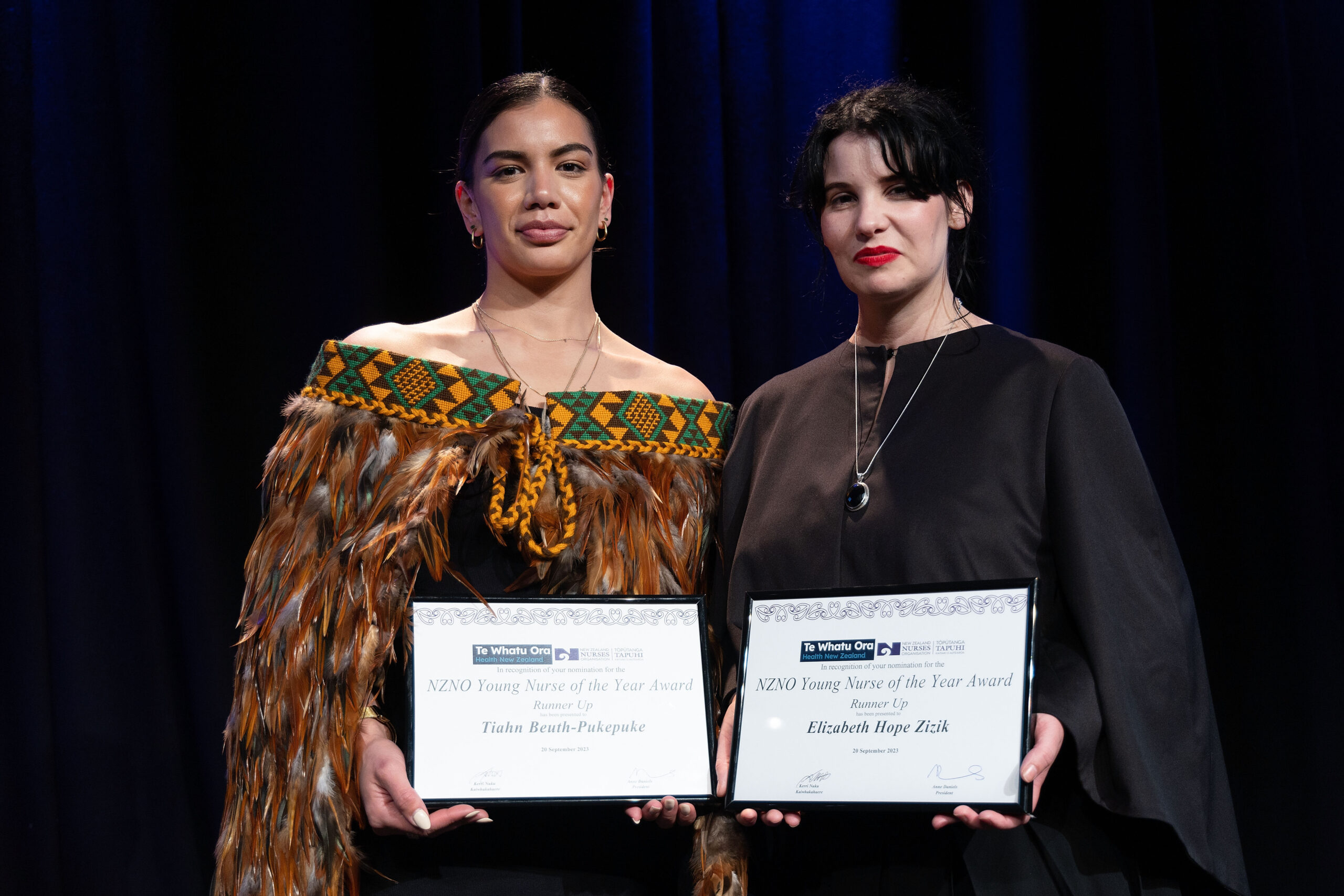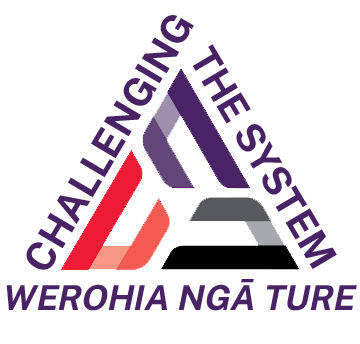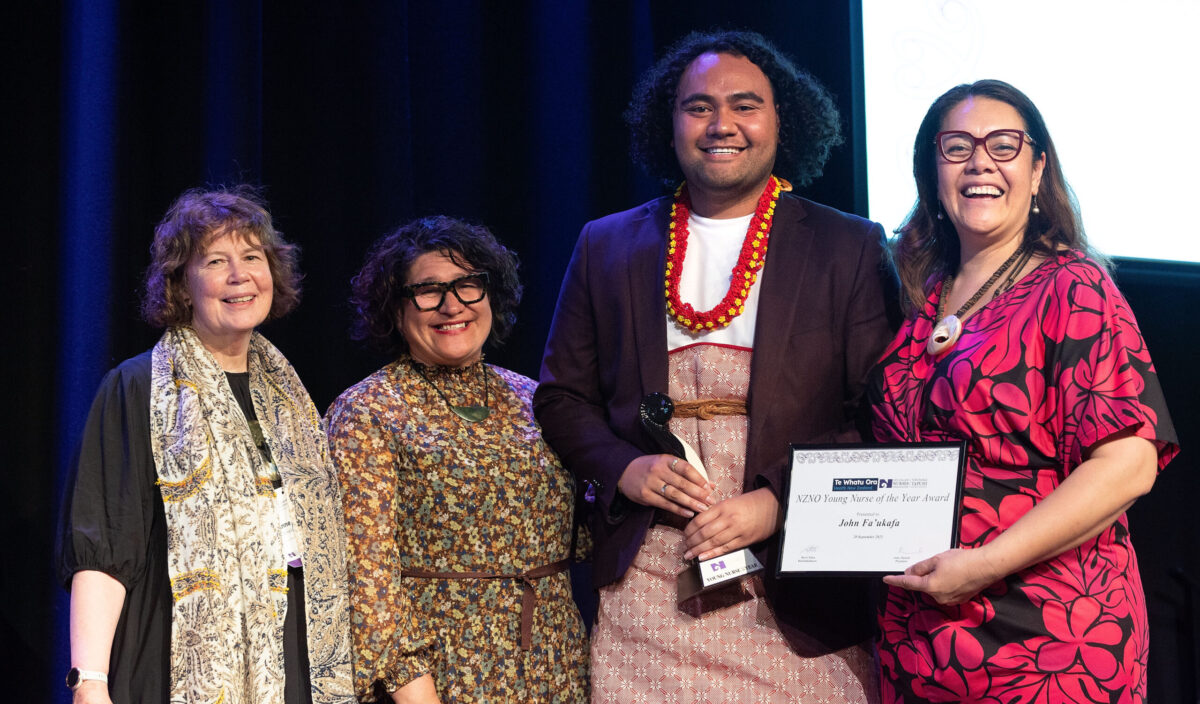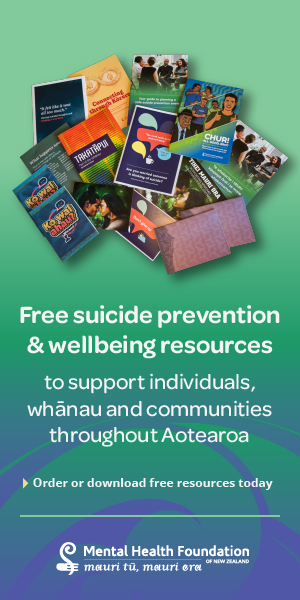“I’m grateful for my experience growing up with the struggling to come out – because I can relate in a way, I can draw parallels.”
Fa’ukafa, who works at Auckland sexual health services, was this week awarded NZNO young nurse of the year for his work in sexual health, including with sexual assault victims, and caring for marginalised communities.
“I definitely had a tough time in my personal life – growing up being a gay kid. I always knew I was gay – but just telling someone or just saying the words was the most difficult part,” Fa’ukafa, 29, told Kaitiaki.
‘Why does representation matter? Representation matters because you want to see a physical manifestation of your dreams.’
As well as facing school bullies, his biggest fear was being ostracised by his family.
“Just the fear of being shunned and not being accepted, especially by your own family. We’re predominantly a Christian household and went to church quite religiously. So it was most difficult to say those words.”
Growing up among Auckland’s Pasifika community, Fa’ukafa said he was always curious about why sexual health was such a taboo topic of conversation.
After graduating in 2016, he worked in Auckland hospital orthopaedic and cardiac services before switching to the Auckland sexual health service in 2021, after noticing a lack of Pasifika presence. Fa’ukafa also works after-hours at the attached Pohutukawa adult sexual assault clinic.
“We need representation and presence in sexual health services — it’s such a stigmatising space . . . particularly in my culture,” Fa’ukafa says. “Why does representation matter? Representation matters because you want to see a physical manifestation of your dreams.”
‘They just feel comfortable and less ‘ma (ashamed) about the things they always wanted to express.’
Fa’ukafa says he hopes to be that manifestation for other Pasifika people, as well as Māori, providing a safe, non-judgmental space particularly for rangatahi — young people.
“If I could bridge that gap and make it more accessible for people who need it the most, that’s great.”
Fa’ukafa said it was “heart-warming” when people opened up with all the things going on in their lives. “They just feel comfortable and less ‘ma (ashamed) about the things they always wanted to express,” he said.
“When someone looks like you, someone can relate to you – they’re more likely to open up to you.”
That included shockingly high numbers of “young brown males” who shared their experiences with him of being sexually assaulted, often a long time ago.
‘There are a lot of patients . . . still experiencing the same things that I experienced 10 or 15 years ago. Being bullied, ostracised . . . having no one to turn to.’
Hearing their stories, he said sometimes it felt like little had changed since his own youth.
“People say ‘oh we have come a long way’ but there are a lot of patients who come through who are still experiencing the same things that I experienced 10 or 15 years ago. Being bullied, ostracised from their communities, left to figure it out, being depressed and anxious and having no one to turn to. So those are the type of vulnerable people that we see.”
Fa’ukafa said while his own father struggled to accept he was gay, it worked out “beautifully” in the end, thanks to his “superhuman” mother and supportive siblings.
“My dad took it hardest – he was born in 1950s’ Tonga, so I knew it was going to be hard.” While they don’t discuss it, “I know he loves me”.
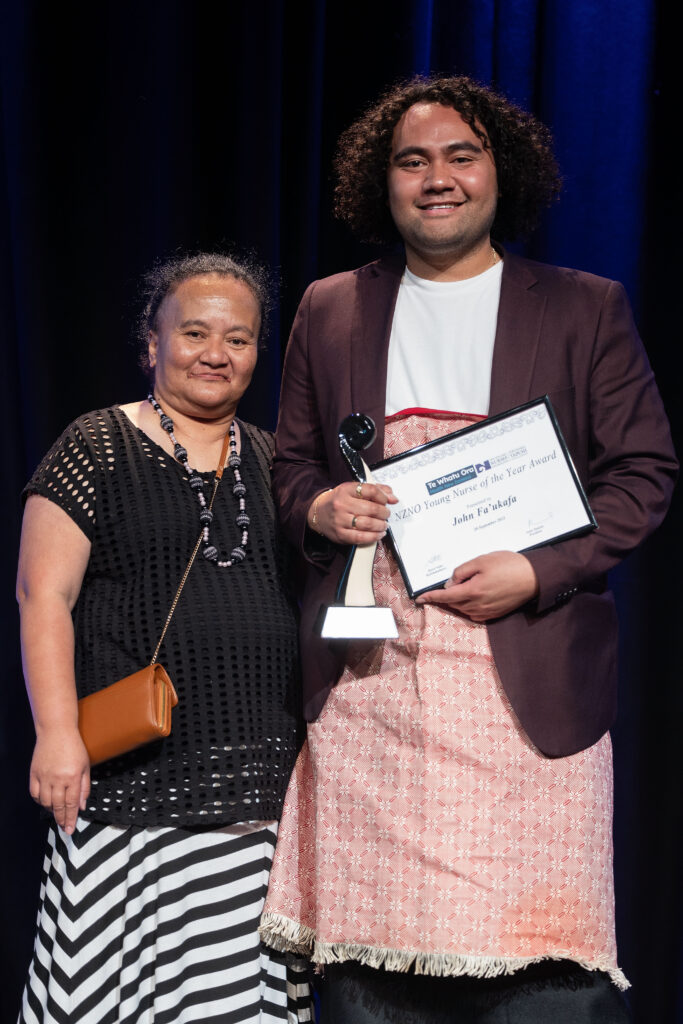
His message to young people struggling with being open about their gender or sexual identity, is to develop “resilience”.
“In the real world, you can never control what other people say or do to you. You can only control how you react to them. That’s what I’d say.”
Colleagues who nominated him said Fa’ukafa drew on his own experiences with racism and homophobia to support patients. He always sought to improve people’s access to sexual health services, and worked hard to support people with HIV.
Fa’ukafa also volunteered at hospital during the early stages of the COVID-19 pandemic and got involved with supporting gay and bisexual men at risk of contracting monkeypox during a global outbreak in 2022.
Dunedin women’s health nurse Elizabeth Hope Zizik and Auckland youth health nurse Tiahn Beuth-Pukepuke were also award finalists.
Beuth-Pukepuke was nominated for her work in sexual health with rangatahi in Tāmaki Makaurau/Auckland.
Hope Zizik co-founded Hekate, a menstrual and hormonal telehealth service, which offers nurse-led period clinics.
